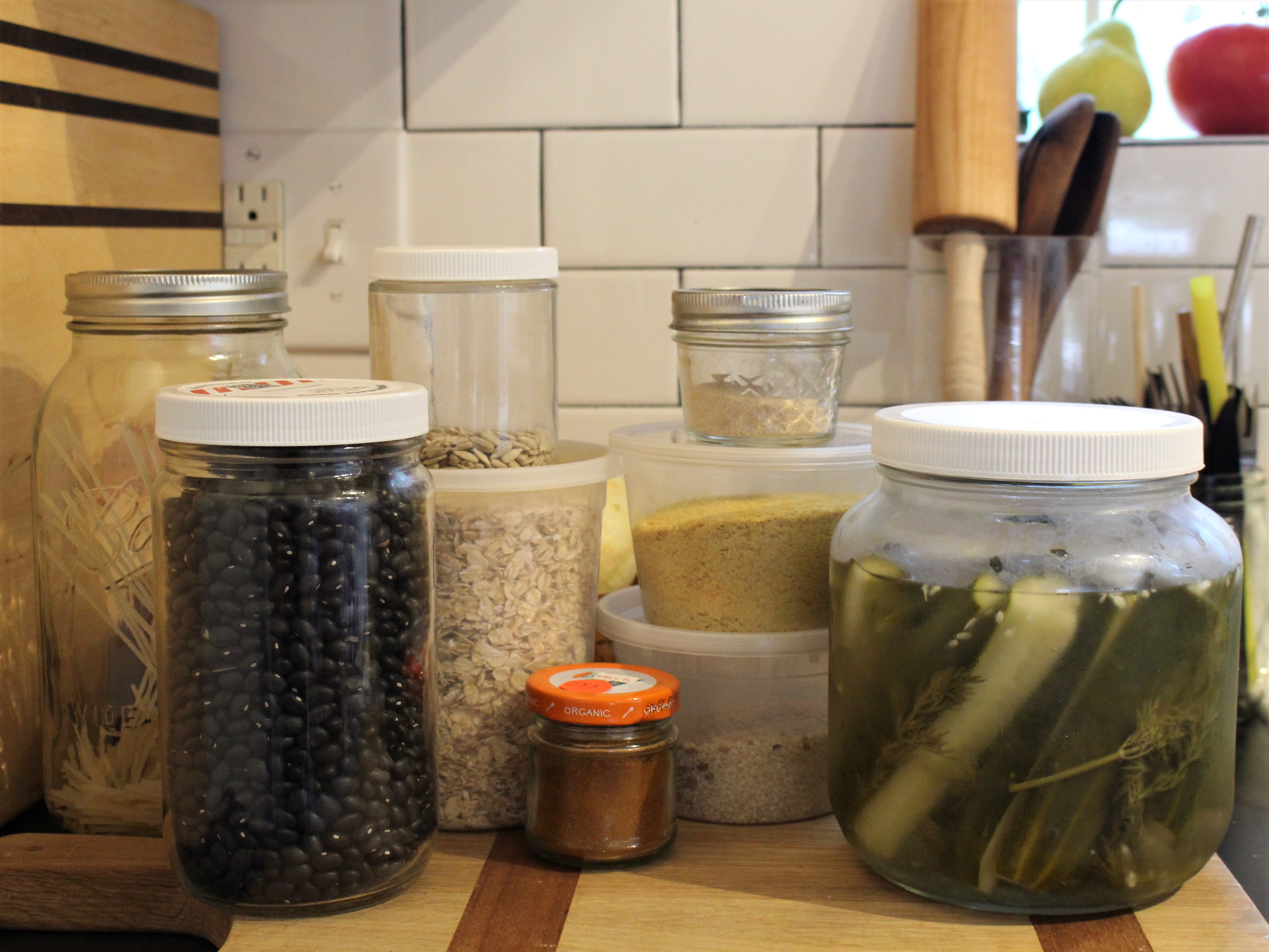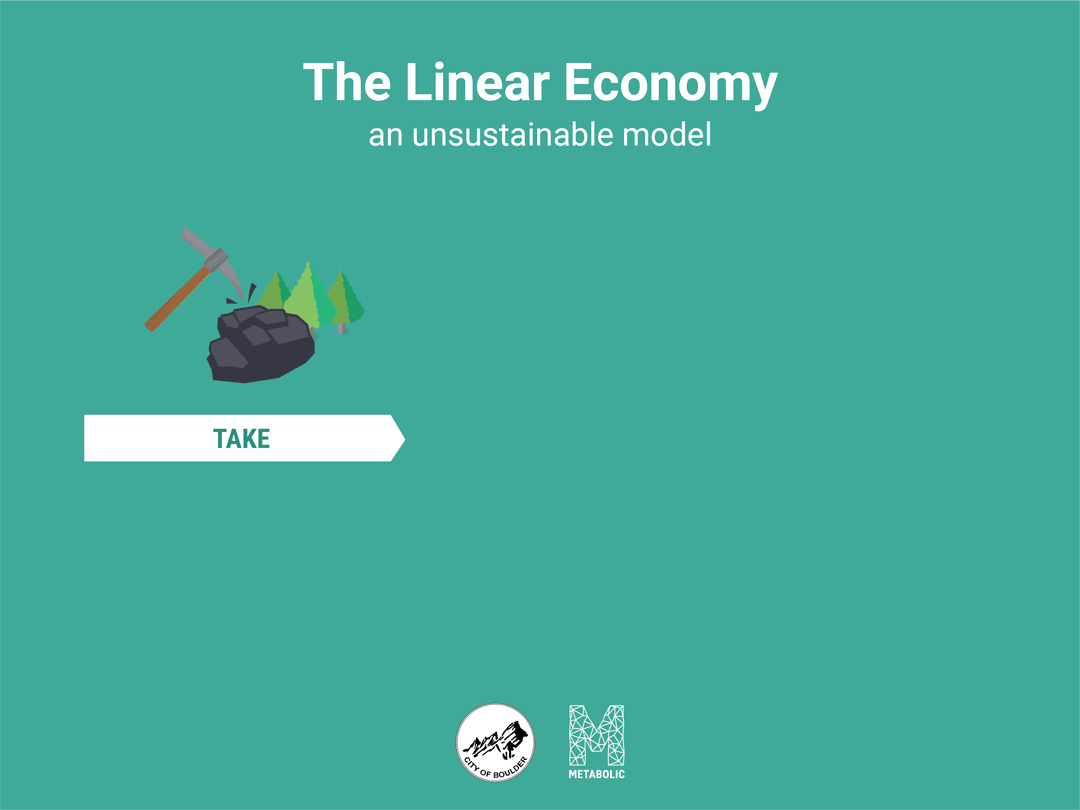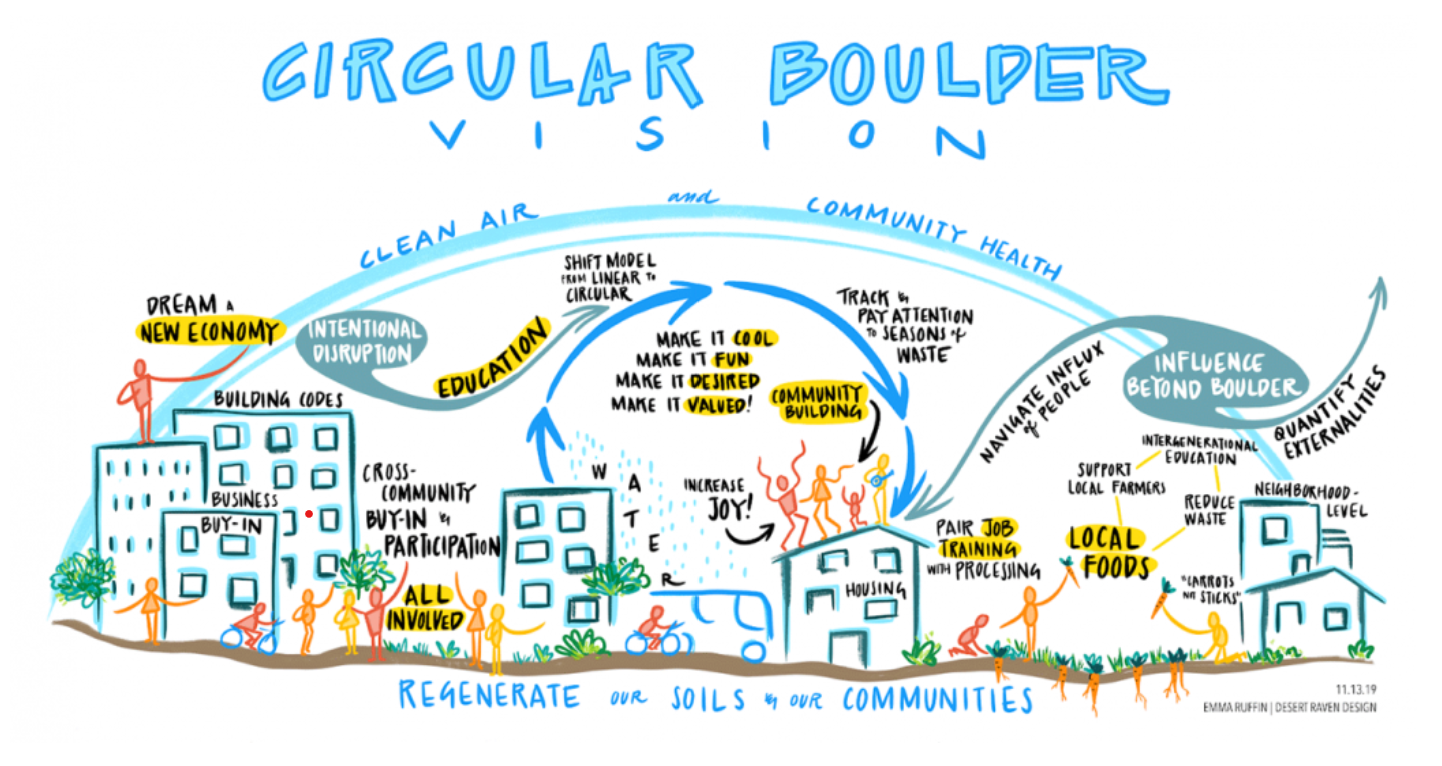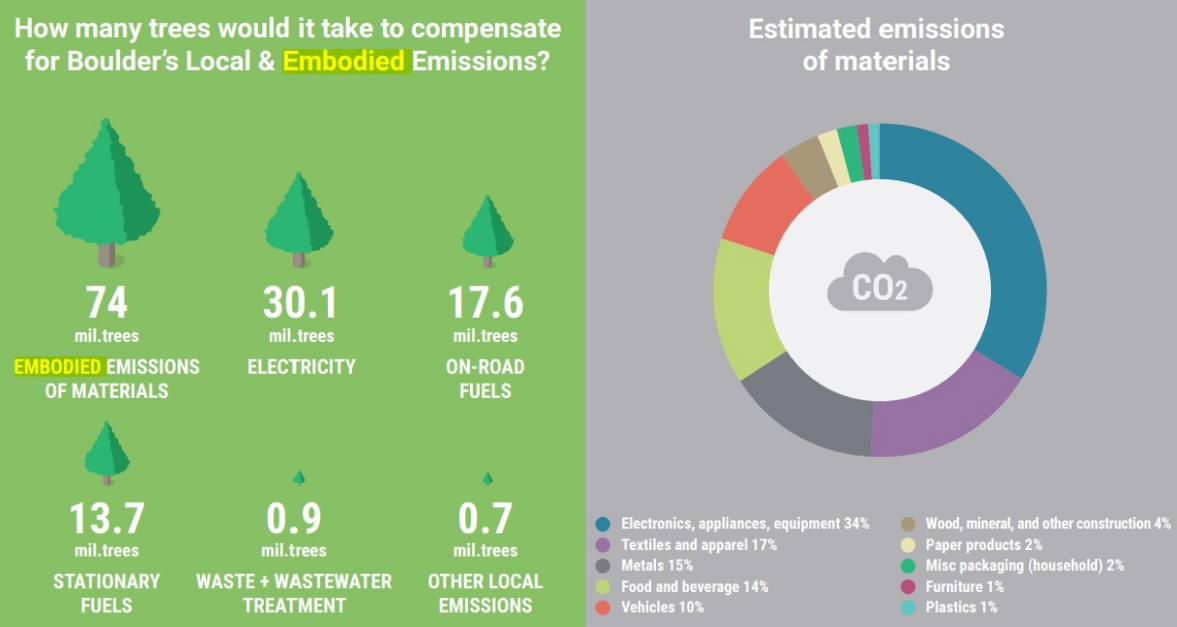Circular economies are resilient and regenerative systems that rethink how materials are produced, used and discarded. They reuse, repair and recirculate existing products and materials for as long as possible. Once materials reach the end of their life, they are recycled and transformed into new products.
What is a Circular Economy?

Reduce, Reuse, Repair, Then Recycle
Recycling is a critical part of our journey to become a zero waste community, but it is only one piece of the puzzle.
Reducing our consumption and reusing instead of buying new are powerful ways to shrink our collective environmental impact, while supporting a more circular economy and creating less waste to divert from the landfill.
The Circular Boulder Vision

Metabolic
Our vision is to build a more circular local economy that keeps materials out of landfills and in use as much as possible. This growing area of work moves beyond recycling and composting to focus on preventing waste and pollution in the first place. It also explores innovative ways to curb Boulder’s collective consumption through reuse and repair.
Circular systems are regenerative and resilient by design. They save energy, natural resources and money while reducing our community's greenhouse gas emissions and contribution to the landfill – helping Boulder reach 85% waste diversion and carbon neutrality by 2035.
Building Boulder’s circular economy is community-wide effort taking shape through partnerships between the city, local nonprofits, governments and businesses. Learn more about the partnerships that make this work possible.

Emma Ruffin
Consider Embodied Emissions
Everything we buy contains embodied emissions, the greenhouse gas emissions produced by the creation and shipment of goods.
The city’s Circular Economy report shows that embodied emissions in Boulder are greater than the total of all of Boulder’s other local emissions put together – including electricity, transportation and natural gas. This means that what we buy has a bigger environmental impact than what we drive and how we power our lives.

Metabolic
The Big Picture
Building Circular Boulder is part of a global effort to reshape local, state and national economies in service of equity and sustainability.
Listen to a clip from our conversation with Economist Kate Raworth:
Kate Raworth, Author and Economist:
If we’re going to solve this – if we’re going to turn this story around, we need to bring economic ideas and theories, and governmental policies, and business models and community action of our own. We need our own ideas. Now, some people find that utterly overwhelming, others see it as that incredible opportunity of a lifetime to redesign our economies in ways that we already knew we needed to. We need to take today’s linear, degenerative industrial economy that runs down the living world, we take, make, use and throw it away – we need to bend those arrows around so that we create a cyclical, circular, regenerative economy in which resources are not used up, they’re used again, and again far more carefully, collectively, creatively and slowly. So that we then belong on this planet because we work with and within the cycles of this living world. We belong within planetary boundaries and that is the boundary for our economy.
Watch a full length conversation with Raworth, hosted by the city.
Circularity at the State Level
Check out these guides for helpful tips.
Composting is Circular
Composting is another way to participate in our circular economy. Whether it takes place in your backyard bin or in a large-scale facility, the composting process gives food scraps and plants a new life, turning them into a nutrient-rich soil amendment that nourishes our farms and natural communities.
Healthy compost also prevents soil erosion, retains water and stores carbon dioxide – the most common greenhouse gas emission. Learn how compost is a tool for regeneration.


Ready to go beyond curbside composting? Learn how to get involved with local composting projects by checking out Cool Boulder, a campaign to carry out nature-based climate solutions through a network of community leaders.
Compost Right
Save Our Soil
Composting supports our local ecosystem by creating rich, nutritious soil. Healthy soil absorbs water and carbon, increases biodiversity and improves our local food system.
But, many non-compostable items have been found in our residential and commercial compost. Without a way to sort compostable materials from diapers, plastics and other contaminants, valuable resources like food scraps and yard trimmings can be sent to the landfill. Learn more about how and why to compost correctly with city partners Jeff & Paige in the Save Our Soil music video, below.
Explore the City’s Circularity Projects and Partnerships
Sustainable Deconstruction
The city regulates waste reuse and recycling for large-scale construction and deconstruction projects. These requirements keep building materials out of the landfill and in our local economy.
6400 Arapahoe
6400 Arapahoe is the city’s hub for reuse, recycling and innovation run by community-based nonprofits and city partners Eco-Cycle and Resource Central.
Resource Central resells a wide selection of used construction and building materials at their reuse center at 6400 Arapahoe. They also offer sustainable deconstruction assessments, tool rentals and free pickup services for qualifying donations, including doors, windows and other reclaimed materials.
Eco-Cycle is one of the oldest and largest nonprofit recyclers in the country. They process our recyclables, provide zero waste education for our community, run the Center for Hard-to-Recycle Materials (CHaRM) and much more.
Community Cycles Tire Recycling
Local bike tire recycling is made possible by a partnership between the city, Community Cycles and Eco-Cycle. Used tires in good working condition are resold in the Community Cycles bike shop, while worn out tires beyond repair are redirected to local companies for reuse.
The nonprofit also offers bike repair workshops, used bikes and bike accessories, and access to repair tools and staff assistance in their DIY Bike Shop.
Learn more by reading the city’s newsroom blog.
Tennis Ball Recycling
Community members can recycle any brand, condition or color of tennis ball for free. This program is made possible by a partnership between the city and Vermont nonprofit Recycle Balls. Tennis balls are transformed into horse arena footing and dog toys.
Learn more by reading the city’s newsroom blog.
We are also working toward zero waste.
Our city is working to divert 85% of waste from landfills, a milestone used internationally to define a zero waste community.
Universal Zero Waste Ordinance (UZWO)
The UZWO is one of many community-wide efforts in pursuit of Boulder’s zero waste future. It requires that all residential and commercial properties, businesses and special events in Boulder have separated collections and compliant signs for compostable materials, recycling and landfill-bound trash.